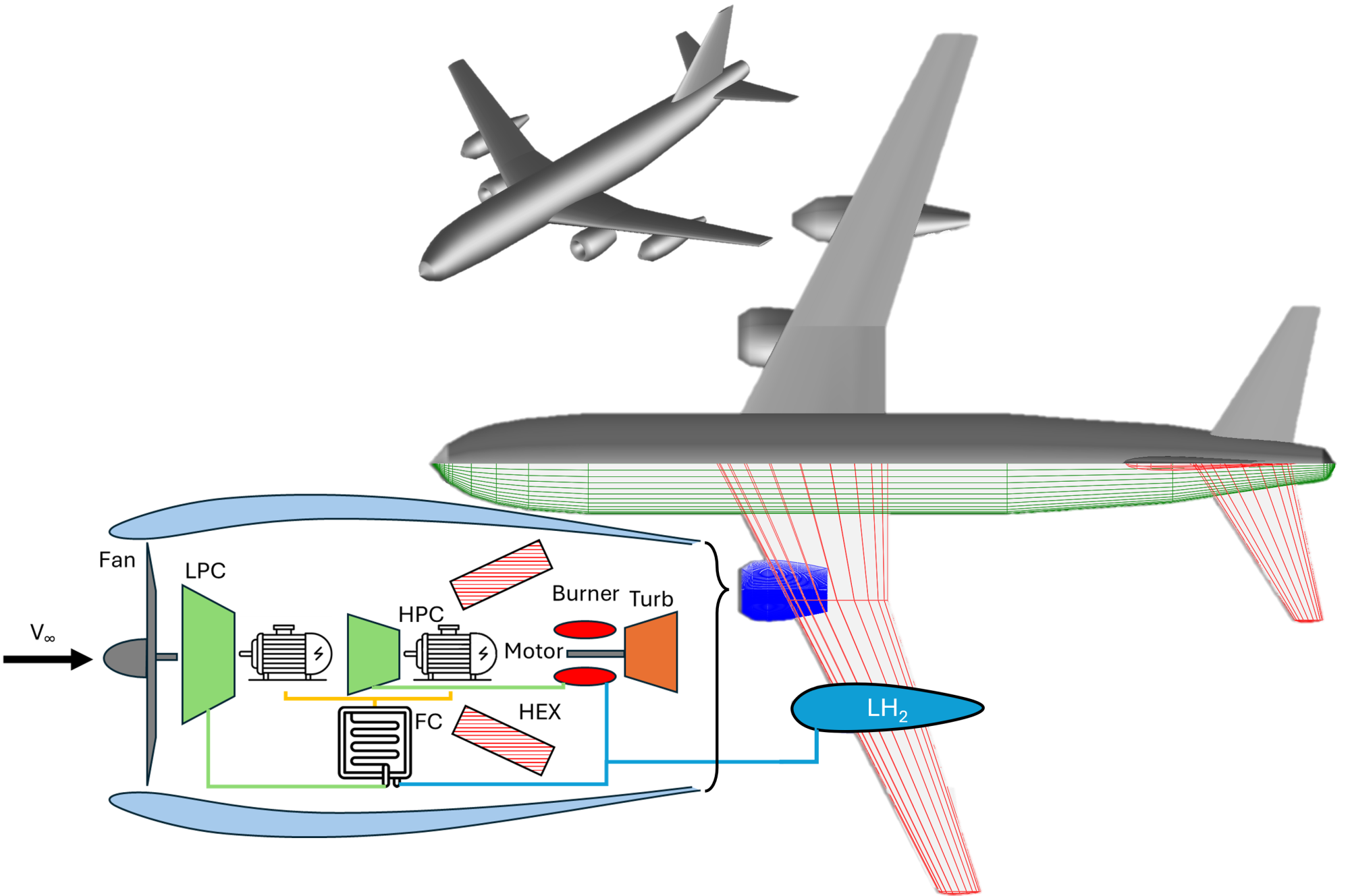Hybrid Hydrogen Aviation: A New Frontier in Sustainable Flight

picture: NASA
Hybrid technology has long been a cornerstone of road transport innovation, but its potential reaches far beyond highways. A new initiative funded by NASA is exploring how hydrogen hybrid propulsion could revolutionize aviation, an industry currently responsible for 2.5% of global CO₂ emissions.
One of the pioneering projects in this area is Hy2PASS (Hydrogen Hybrid Power for Aviation Sustainable Systems), led by Dr. Phillip Ansell from the University of Illinois Urbana-Champaign. NASA’s NIAC (NASA Innovative Advanced Concepts) grant is supporting research into this innovative propulsion system, which could redefine how aircraft generate and utilize power.
Hy2PASS introduces a novel propulsion system that combines hydrogen fuel cells with gas turbines, a synergy designed to optimize energy efficiency and eliminate carbon emissions. A key innovation is the decoupling of the compressor from the turbine, allowing for independent control of airflow and power generation.
If successfully developed, this system could:
- Significantly improve fuel efficiency by minimizing energy losses
- Enhance operational flexibility for aircraft propulsion
- Reduce emissions to water vapor, eliminating CO₂ and NOₓ pollutants
This technology holds promise, but challenges remain in hydrogen production, storage, and infrastructure development before it can be integrated into commercial aviation.
While Hy2PASS is primarily aimed at aviation, its core principles of hybrid energy management may inspire advancements in other industries. Optimized power distribution and hydrogen integration strategies could offer insights applicable to long-haul transport and heavy-duty vehicle electrification. However, its direct application to commercial ground transport remains speculative.
Rather than being a near-term solution, projects like Hy2PASS serve as a crucial research pathway toward scalable, low-emission transportation technologies.
To maximize the potential impact of Hy2PASS and similar innovations, we recommend:
- Tracking the progress of this research to identify viable applications beyond aviation.
- Engaging with cross-industry experts to evaluate synergies between aviation and ground transport hydrogen solutions.
- Supporting policies that expand hydrogen infrastructure, which remains a key enabler of its adoption across multiple transport sectors.
While Hy2PASS remains in the experimental stage, it represents an important step toward a cleaner, hybrid-powered future in aviation and beyond. We will continue to monitor its advancements and share insights on its potential applications.
More Information: https://www.nasa.gov/directorates/stmd/niac/niac-studies/hydrogen-hybrid-power-for-aviation-sustainable-systems-hy2pass/


